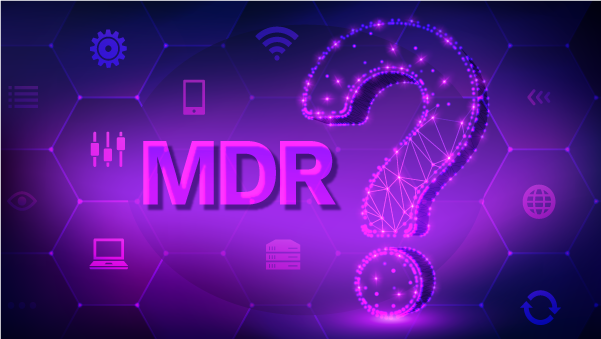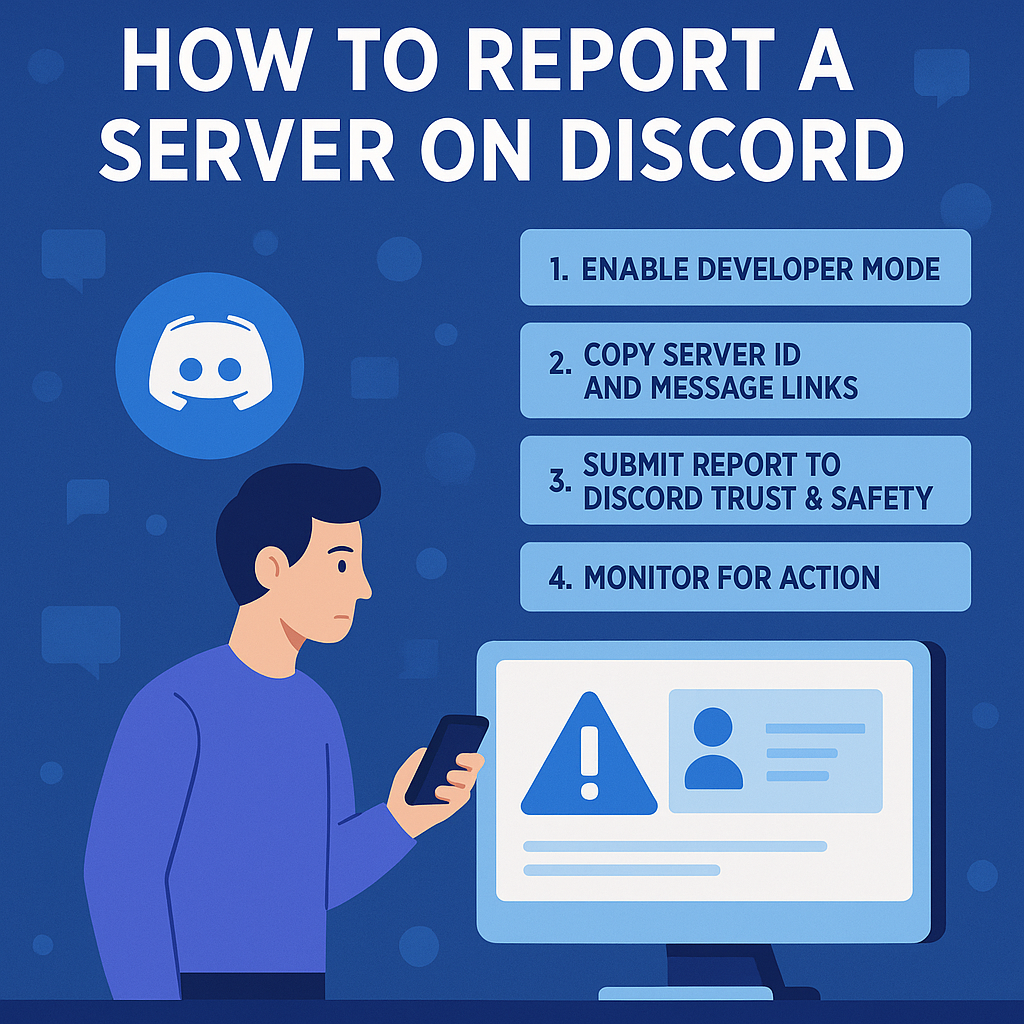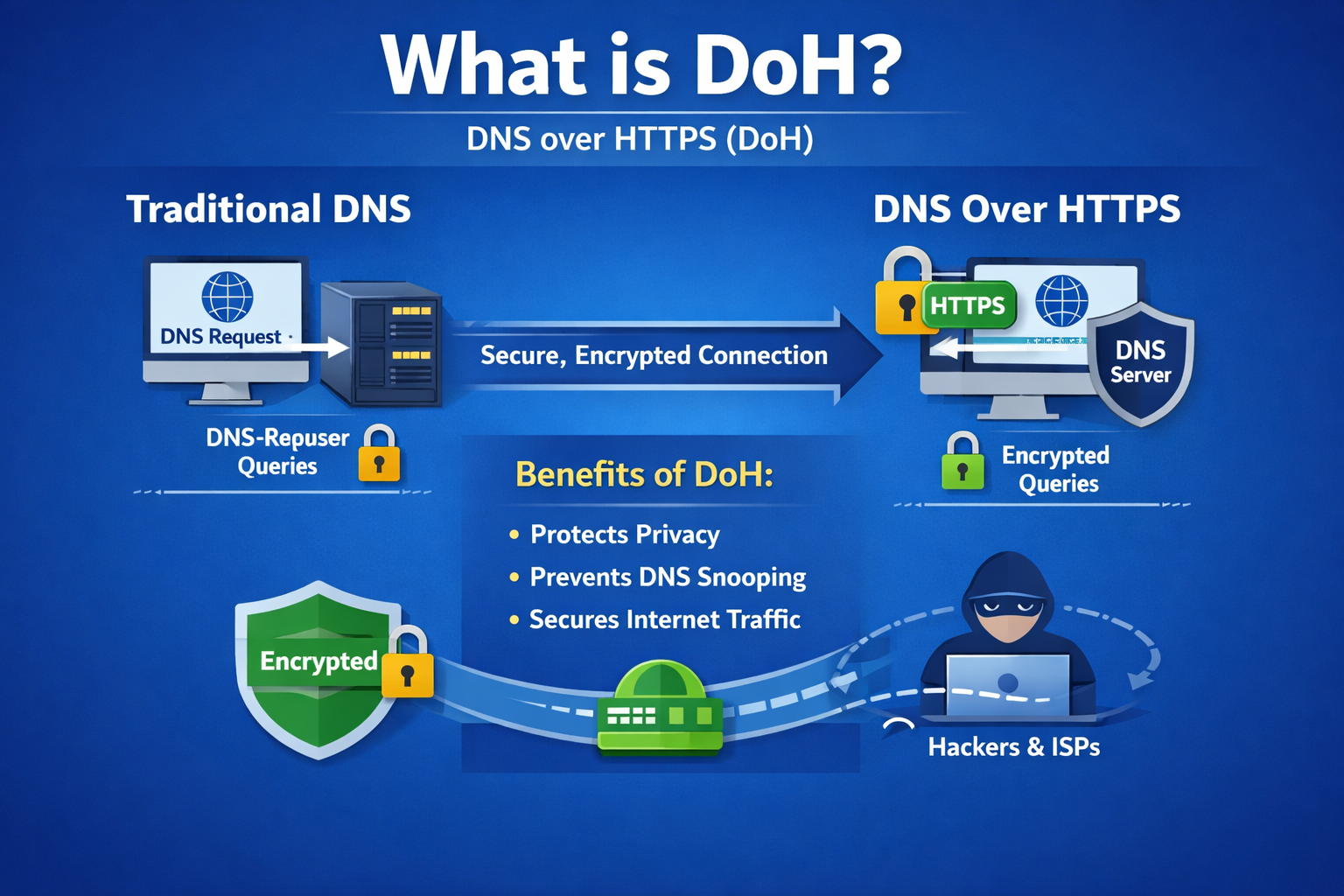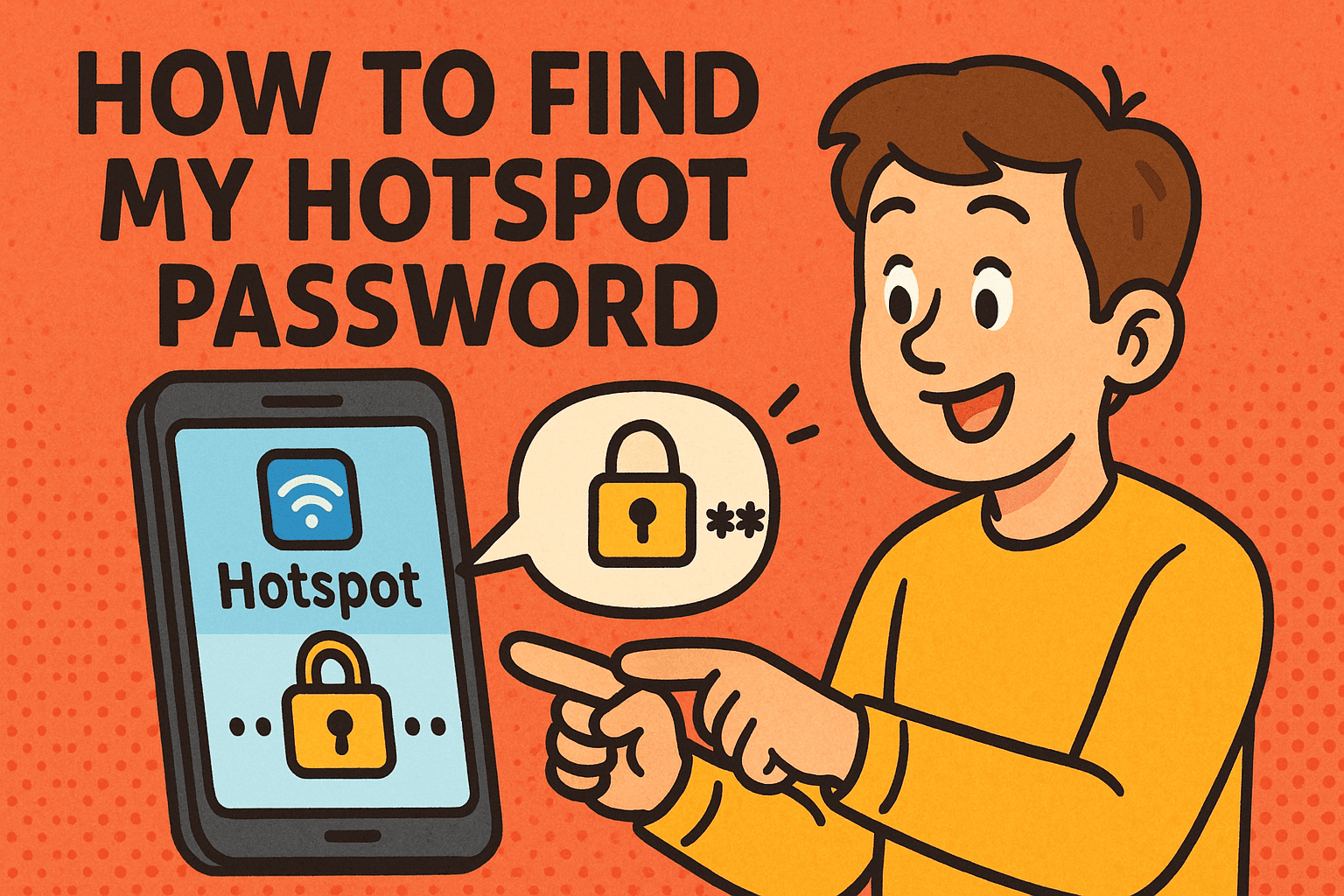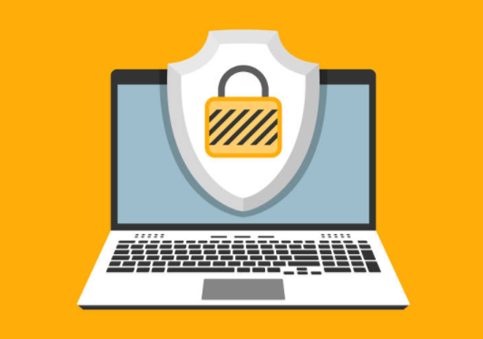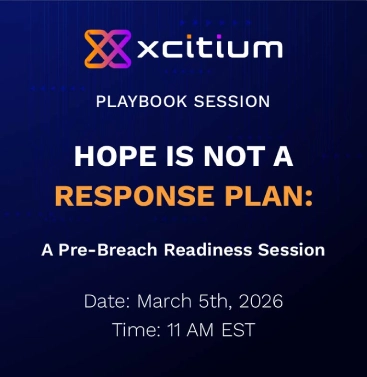Kaseya One vs Xcitium: Which Platform Fits Today’s Cybersecurity Needs?
Updated on September 16, 2025, by Xcitium
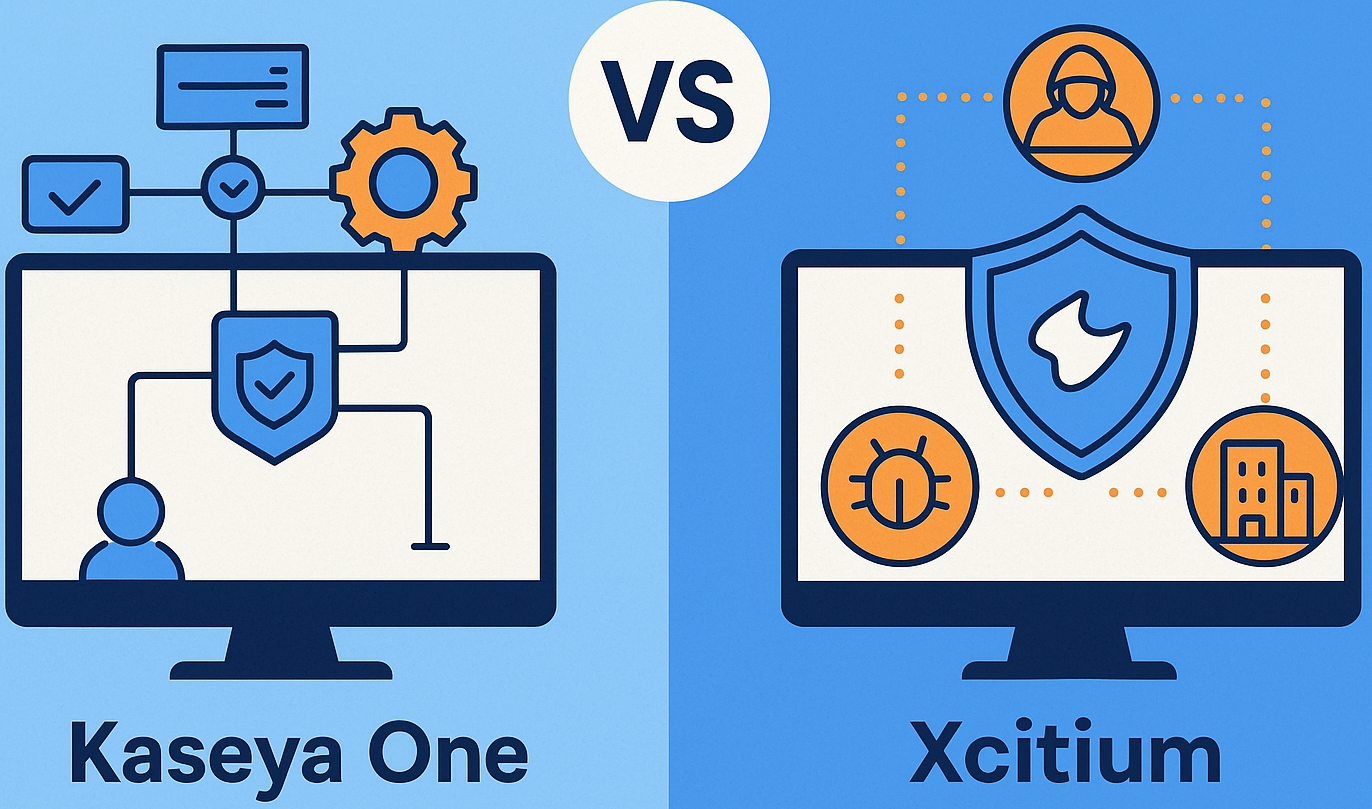
Did you know that cybercrime damages are projected to reach $10.5 trillion annually by 2025? For IT managers, CISOs, and business leaders, this staggering figure highlights a crucial fact: IT management can no longer exist in isolation from cybersecurity.
Solutions like Kaseya One have helped organizations streamline IT operations by providing unified dashboards and management tools. However, with today’s advanced threats—ransomware, phishing, zero-day attacks, and advanced persistent threats (APTs)—a platform that prioritizes security above all else is essential.
This is where Xcitium stands apart. While Kaseya One focuses primarily on IT service management, Xcitium integrates cutting-edge cybersecurity protection and endpoint defense into every layer of its platform, making it a future-ready solution for businesses across industries.
In this article, we’ll compare Kaseya One vs Xcitium, explore their features, and explain why Xcitium is the smarter choice in 2025.
What is Kaseya One? (Overview & Capabilities)
Kaseya One is marketed as a unified IT management platform. It provides IT professionals with a centralized dashboard that integrates multiple IT tools under one umbrella.
Key Features of Kaseya One
- Unified Dashboard: Simplifies IT visibility and reporting.
- Service Automation: Reduces repetitive tasks and increases efficiency.
- Integrations: Works with Kaseya’s suite of IT products for endpoint and network management.
- Cost Management: Helps reduce IT overhead by consolidating multiple systems into one platform.
Kaseya One is particularly appealing for small to mid-sized businesses (SMBs) that want to centralize IT workflows and save time.
Limitations of Kaseya One
Despite its strengths, Kaseya One comes with clear limitations:
- Cybersecurity is not its core focus. While it integrates with security tools, it lacks advanced threat prevention.
- Legacy design. Many features feel built for yesterday’s IT challenges rather than today’s evolving cyber threats.
- Scalability concerns. While suitable for SMBs, enterprises often require stronger compliance and security-first architectures.
This sets the stage for why many organizations are now exploring Xcitium as a more robust alternative.
Introducing Xcitium: The Next-Gen Cybersecurity Platform
Unlike traditional IT management tools, Xcitium is a cybersecurity-first platform. It was designed with the reality of today’s cyber threats in mind, making it a natural choice for IT leaders, CISOs, and CEOs looking for both IT efficiency and cybersecurity resilience.
Core Features of Xcitium
- ZeroDwell Containment Technology: Proactively isolates unknown threats before they can execute.
- Endpoint Security: Advanced protection for devices across the enterprise.
- Threat Intelligence: Real-time, AI-driven threat detection and analytics.
- Cloud Integration: Seamless monitoring and protection across hybrid IT environments.
- Compliance Support: Built to align with industry regulations like HIPAA, GDPR, and PCI-DSS.
With Xcitium, organizations don’t have to choose between IT efficiency and security—they get both.
Side-by-Side Comparison: Kaseya One vs Xcitium
To make the differences clearer, here’s a direct feature comparison between Kaseya One and Xcitium:
| Feature | Kaseya One | Xcitium |
| Unified Dashboard | ✅ Yes | ✅ Yes |
| Cybersecurity Focus | ❌ Limited | ✅ Advanced (ZeroDwell Containment) |
| Threat Intelligence | Basic integrations | AI-powered, real-time monitoring |
| Endpoint Security | Moderate | Enterprise-grade ZeroDwell protection |
| Scalability | Best for SMBs | Scales from SMBs to large enterprises |
| Compliance Support | Limited | Strong alignment with modern standards |
Why Xcitium is the Smarter Choice in 2025
The reality is simple: IT management alone is no longer enough. Businesses face threats that bypass traditional tools, making a cybersecurity-first approach essential.
Modern Cybersecurity Trends Driving the Shift
- Ransomware: Attacks are growing more sophisticated and frequent.
- Phishing & Social Engineering: Targeting both employees and executives.
- Zero-Day Exploits: Exploiting vulnerabilities before patches are available.
- Advanced Persistent Threats (APTs): Long-term, stealthy attacks aimed at sensitive industries.
Kaseya One helps centralize IT, but it was not designed to stop these advanced attacks. Xcitium, on the other hand, is built to contain and neutralize threats before they spread, making it a proactive defense system for today’s enterprises.
Actionable Tips: Choosing the Right IT & Security Platform
If you’re evaluating IT and cybersecurity platforms, consider this checklist:
✅ Does the platform integrate cybersecurity deeply, not just as an add-on?
✅ Is it scalable for enterprise growth as well as SMB needs?
✅ Can it defend against modern threats like ransomware and zero-day exploits?
✅ Does it simplify visibility and compliance reporting for IT managers and CISOs?
When you apply this checklist, it becomes clear: Xcitium checks every box, while Kaseya One only partially meets the requirements.
Use Cases by Role: Why Xcitium Benefits Everyone
One of Xcitium’s biggest strengths is its adaptability across different leadership roles within an organization.
For IT Managers
- Gain a unified view of devices and endpoints.
- Automate IT workflows while ensuring cybersecurity is embedded.
For CISOs
- Advanced threat intelligence and detection.
- Tools that ensure compliance with regulatory standards.
For CEOs and Founders
- Business continuity: Reduce downtime from breaches.
- Financial savings: Prevent costly incidents while streamlining IT investments.
FAQs
- What is Kaseya One used for?
Kaseya One is an IT management and monitoring platform designed to centralize IT tasks, automate services, and reduce overhead costs. - How does Xcitium differ from Kaseya One?
While Kaseya One focuses on IT service management, Xcitium integrates advanced cybersecurity features, including ZeroDwell Containment, to defend against modern cyber threats. - Is Xcitium suitable for small businesses?
Yes. Xcitium is highly scalable, making it a strong fit for both SMBs and large enterprises. - Which offers better endpoint protection?
Xcitium, because of its ZeroDwell Containment technology, which isolates unknown threats before they execute. - Why should enterprises switch from Kaseya One to Xcitium now?
Because cyber threats are evolving faster than traditional IT tools can handle. Xcitium provides proactive, AI-powered security built for today’s landscape.
Conclusion & Call-to-Action
In the battle of Kaseya One vs Xcitium, the difference lies in focus. Kaseya One provides a reliable IT management foundation, but its limited cybersecurity scope makes it less suitable for today’s threat environment.
Xcitium, however, delivers cybersecurity-first IT management—offering the proactive defenses, compliance readiness, and scalability that modern organizations demand.
👉 Take the next step in securing your business future: Request a Demo from Xcitium



 (52 votes, average: 3.52 out of 5)
(52 votes, average: 3.52 out of 5)